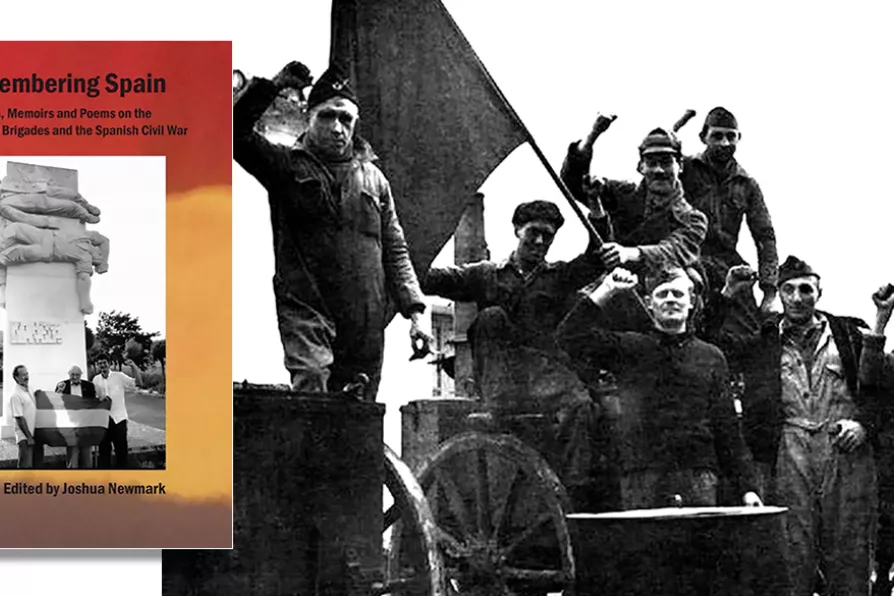SIMON PARSONS applauds an original, visual and movement-based take on the birth and death of a relationship

 Members of the International Brigade in the British cookhouse at Albacete raise their fists in the Communist salute.
[Vera Elkan/CC]
Members of the International Brigade in the British cookhouse at Albacete raise their fists in the Communist salute.
[Vera Elkan/CC]
Remembering Spain - Essays, Memoirs and Poems on the International Brigades and the Spanish Civil War
Edited by Joshua Newmark, The Clapton Press, £17
BETWEEN 1936 and 1939 approximately 2,500 men and women from Britain and Northern Ireland served in the International Brigades, a force made up of anti-fascist volunteers who fought for the Spanish Second Republic during the Spanish Civil War, in an expression of international solidarity with the Spanish people’s struggle and a supreme effort to stop the spread of fascism.
The majority of British volunteers came from working-class backgrounds and had taken part in hunger marches, protests like the Kinder Scout Trespass, and activities aimed at bringing about political and social change. This was a Britain where for many the living conditions were grim, poverty rampant, and unemployment the norm.
The Brigade was truly international, with 35,000 volunteers heading for Spain from 52 countries. With Hitler and Mussolini already in power in Germany and Italy, they feared the fall of Spain would threaten the future of democracy in Europe and lead to another world war.

Spanish dictator Francisco Franco died 50 years ago today November 20. JIM JUMP looks back at his blood-soaked rule and toxic legacy on Spain today

JIM JUMP looks forward to the International Brigade Memorial Trust AGM taking place in Belfast later this week where the spirit of solidarity will be rekindled

LYNNE WALSH reports from last weekend’s moving remembrance of the International Brigades in London’s Jubilee Gardens where anti-fascists gathered to hear how even in the darkest of times we can build a vision of a better tomorrow, as the Brigaders fought to do 89 years ago

LYNNE WALSH tells the story of the extraordinary race against time to ensure London’s memorial to the International Brigades got built – as activists gather next week to celebrate the monument’s 40th anniversary










